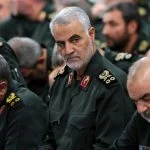Turkey’s parliament has authorised president Recep Tayyip Erdogan to send military forces to Libya in order to support the UN-backed government against general Khalifa Haftar.
Turkey’s move is likely to complicate the war in Libya further. Libya has been beset by a civil war since 2013 after a disagreement on the election results.
When the party of the Muslim Brotherhood lost the elections for the second time, they decided to leave the parliament.
After that, the official parliament left Libya’s capital Tripoli and went to the eastern city of Benghazi.
In order to solve the situation of two parliaments the United Nations decided to form a government of national accord lead by Fayez al-Sarraj.
However, this government was never recognised by forces on the ground and triggered general Haftar to take Libya from the east by force.
Haftar was able to take most of Libya but got stuck in Tripoli, where Sarraj’ government as well as the Muslim Brotherhood are based.
The Libyan war quickly became an international proxy war with Egypt, the United Arab Emirates, Jordan, Russia and France supporting Haftar.
Sarraj and the Muslim Brotherhood received support from Qatar, Turkey and Italy.
The decision of Turkey to send troops to Libya turns the proxy war into a real international conflict, with much similarities to the war in Syria.
Egypt immediately condemned the Turkish move, saying it would “negatively affect the stability of the Mediterranean region” and calling for the international community to react.
Turkey’s vice-president, Fuat Oktay, told the state news agency Anadolu that the vote was intended as a political signal to deter Haftar’s offensive, which has threatened Tripoli and outlying towns.
“We are ready. Our armed forces and our defence ministry are ready,” he said.
Turkey’s move comes days after Israel, Egypt, Greece and Greek Cyprus decided to establish exclusive economic zones for gas exploration, isolating Turkey in the Mediterranean Sea.
Earlier, Turkey signed a maritime jurisdiction agreement with Libya’s UN-backed government giving Turkey rights to swathes of the Mediterranean where gas reserves have recently been discovered.
Turkey is also at odds with the US, after it invaded northern Syria and occupied Kurdish-Syrian land.
The two main Turkish opposition parties, CHP and IYI, were against the decision to send troop to Libya.
They said they do not see why Turkey should be involved in another conflict that has nothing to do with its own national security.







2 Comments